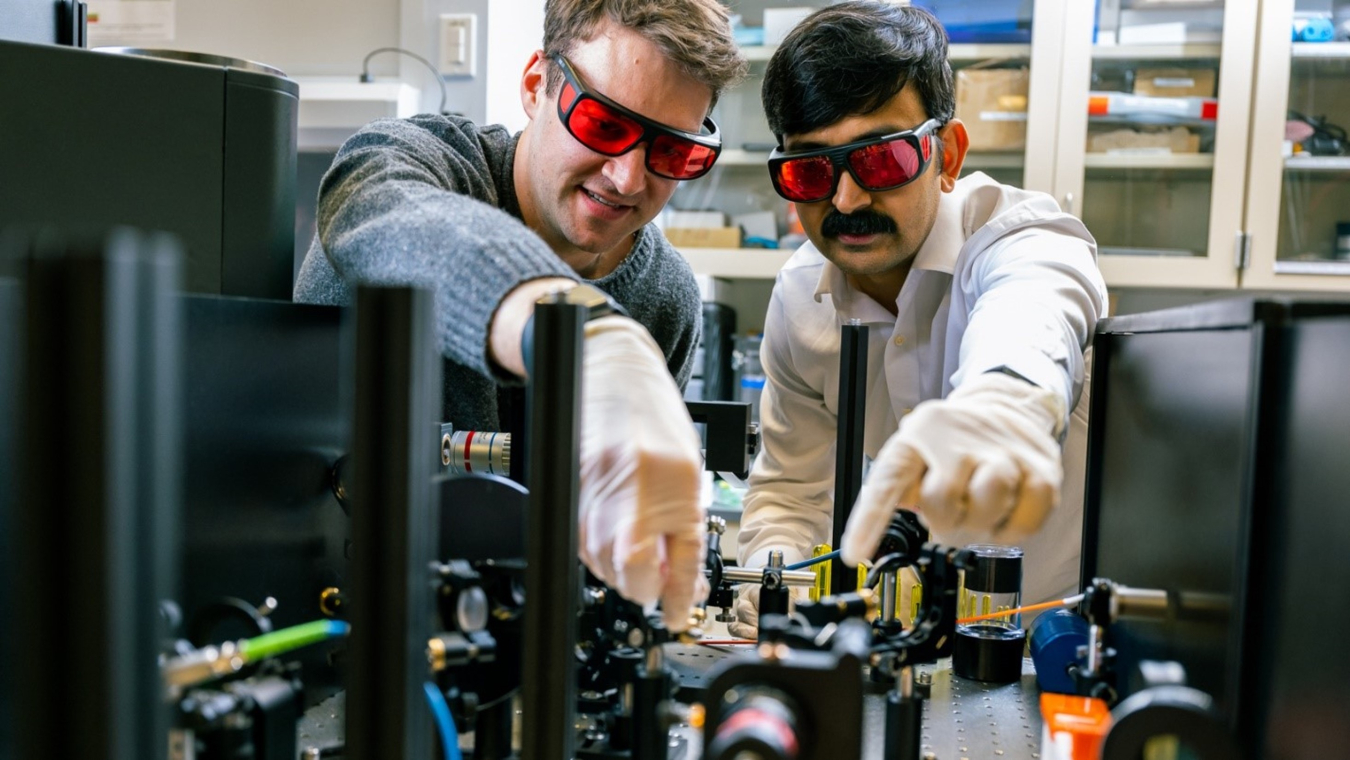memQ, a quantum technology startup, achieved critical milestones with the support of two DOE programs: Energy I-Corps and the Lab- Embedded Entrepreneurship Program (LEEP).
Office of Technology Transitions
October 30, 2024memQ, a quantum technology startup, achieved critical milestones with the support of two DOE programs: Energy I-Corps and the Lab- Embedded Entrepreneurship Program (LEEP). Sean Sullivan, the company’s chief technology officer, participated in Energy I-Corps Cohort 13 while at Argonne National Laboratory, with sponsorship from the Office of Technology Transitions. The Energy I-Corps program provided key commercialization training to help transform memQ from an academic research project into a viable business. The Energy I-Corps program offers intensive 2-month training to DOE National Laboratory, plant, and site teams, equipping them with skills to bring clean energy technologies to market. After completing the program, Sullivan spun out a company and joined Argonne’s LEEP node, Chain Reaction Innovations (CRI), where memQ rapidly developed its quantum networking prototypes. The startup’s journey from lab research to commercial success highlights the impact of Energy I-Corps and LEEP.
Quantum entanglement refers to the way particles remain connected even when separated by vast distances, so that a change to one particle affects the other, no matter how far apart they are. While the concept is complex, Sullivan emphasizes that people do not need to fully understand it to appreciate its importance in quantum computing.
“Entanglement is a powerful resource for quantum networks,” Sullivan said. “We can generate pairs of entangled particles that can travel through standard fiber-optic cables, enabling secure communication between quantum devices.”
Unlike traditional computers, which use binary code (ones and zeros) to communicate, quantum computers use quantum bits (qubits). These qubits cannot be copied, meaning direct connections are necessary to maintain their state during communication. This makes quantum communication incredibly secure.
“We are building the hardware that allows different quantum devices—computers, sensors, and more—to talk to each other over a network,” Sullivan said. “Just like the internet revolutionized regular computing, we’re developing the network infrastructure for quantum technologies.”
The idea for memQ began when Sullivan was a post-doctoral researcher at Argonne developing new types of qubits for quantum communications. While collaborating with a colleague from the University of Chicago, they realized their research could be commercialized, leading to them founding memQ as a company.

memQ’s progress accelerated after Sullivan completed Energy I-Corps Cohort 13 in the fall of 2021, sponsored by OTT. The experience was crucial in transforming memQ from a concept to a company. In February 2022, memQ won the George Shultz Innovation Fund (GSIF) award through the University of Chicago. Sullivan then joined CRI, Argonne’s two-year LEEP node in the fall of 2023, where memQ developed its first prototypes and began expanding. That makes memQ one of three teams from Energy I-Corps to later join a LEEP node.
“We were able to close out a $2.5 million pre-seed round with private investors thanks to the technical de-risking from LEEP coupled with funds from the GSIF award,” said Sullivan. “It meant we did not need to spend as much on expensive capital equipment up front to have a proof-of-concept.”
Sullivan continues to apply the lessons from Energy I-Corps as memQ grows, now employing six full-time and two part-time employees. The company is aiming to bring its main products to market by 2026, with some earlier applications using entangled photons available in 2025. Recently, in partnership with the Air Force Research Lab and AIM Photonics, memQ received its first full batch of semiconductor material, which will be used to create microchips for its products.
It is also a member of the Bloch Quantum Tech Hub, the nation’s only quantum innovation group rallying entire sectors to combat financial fraud, secure the energy grid, and accelerate the development of life-saving drugs. The Hub received $500,000 from the U.S. Economic Development Administration in July 2024 to further strengthen the coalition. memQ is planning another private raise in early 2025.
Reflecting on the journey from lab research to market, Sullivan encourages more scientists to embrace risk-taking.
“As scientists, we tend to be risk adverse, wanting a full dataset before making decisions,” he said. “But stepping out of the lab into the market requires taking risks. I wish that more scientists felt comfortable doing that.”

